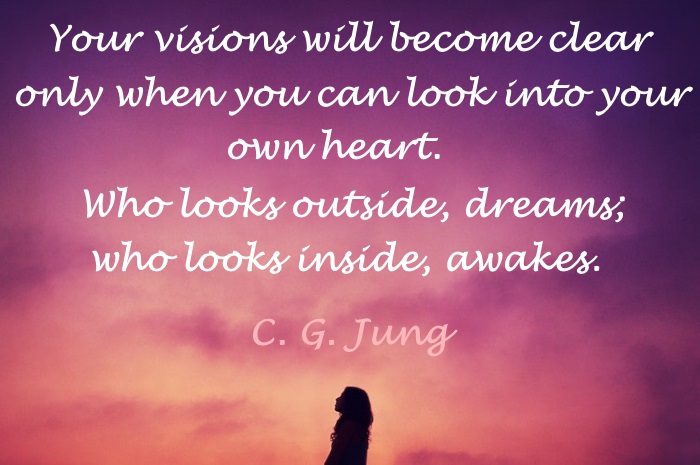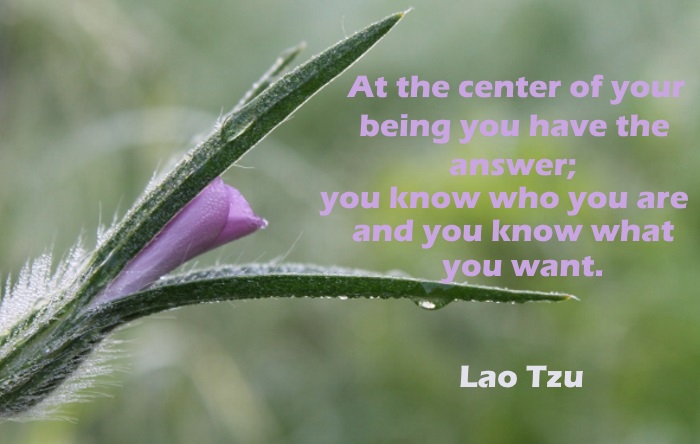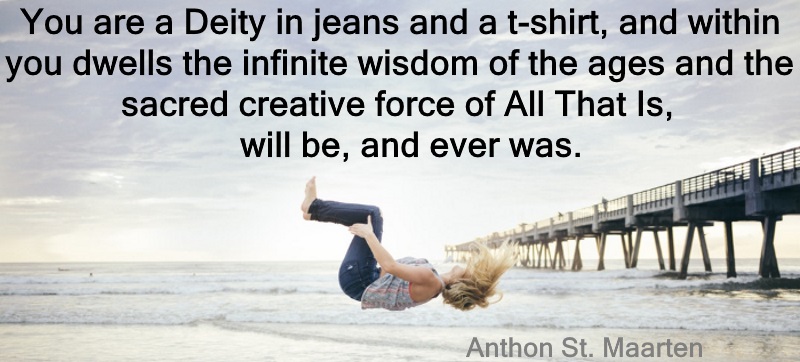
Imagine spending a month climbing a sacred mountain, in search of the wise guru who resides in a small monastery at the top. You stretch your hand over the final peak and, drained and exhausted, pull yourself over. You plod ahead, step by painful step, to the monastery doors, your body sore, your lips and face chafed by the wind. But you’re here. You’re finally here. And you’re finally going to get the answers to all the deep, existential questions you’ve had about life.
As you open the doors, you see the guru sitting crossed-legged, his eyes closed, a serene look on his face. You approach:
“You may ask one question. What would you like to know my child?” he asks, his voice a whisper on the wind.
You run through all the hundreds of questions skirting across your mind, your feverish brain finally settling on one.
“What is the secret to happiness?” you ask urgently.
The guru smiles, opens his eyes, and as he parts his lips to speak, you lean in closer. You strain to listen, knowing that this great lesson he is about to teach you over the next few days or weeks will change your life.
“The secret to happiness, my child, is to practice self-awareness.” The guru closes his eyes again, and resumes his deep meditation. You prod him for more, but he doesn’t respond.
Now, if I had spent months climbing a mountain and received this seemingly simplistic answer to my profound and deeply poignant question, here is what my self-awareness would have told me right at that moment:
“Whack him over the head with one of your mountain-climbing stick thingies, and wipe that serene grin right off his face.”
But alas, my imaginary guru, who in my mind’s eye looks like Mr. Miyagi from The Karate Kid movies, is right. Self-awareness is the key to happiness…and good self-esteem, self-motivation, etc. But what exactly is self-awareness? Thankfully, I can provide you with a nice, detailed answer. These are the characteristics of self-aware people:

- They know their strengths and what they bring to the table, whether it’s in a job or in a relationship. Most importantly, they are aware of their faults and weaknesses.
- They know exactly what they want to do with their life and what they hope to accomplish. The path to their career and life in general is clearly mapped out in their minds. Self-aware people have a clear set of goals and values. To sum it up nicely: They know what they want and they know what they stand for.
- They don’t second-guess their decisions. Even when they realize after the fact that the decision they made may not have been the right one, it’s more of a lesson learned than a, “What they heck was I thinking?”
- If they’re sad, they’ll know why. If they’re angry, they’ll know what triggered it. And while this may seem like a simple and straightforward self-assessment, I can assure you it’s not. Most people’s reactions to situations are knee-jerks. Someone cuts you off in traffic and you get angry, presumably because you got cut off – and most people would stop there. However, self-aware people know that there’s more to it than that. You’re not just angry because you got cut off, you’re angry, perhaps, because you feel disrespected, or because you go out of your way to be a courteous driver, but seemingly to no avail. Self-awareness is about digging deep, and going beyond surface reactions.
- Self-aware people know that the power to control, improve, and change their lives is in their own hands. They know that they are not victims of destiny, fate, or other presumably uncontrollable factors. If they want to change some aspect of their lives, they will take the necessary steps to do so.

So why does self-awareness matter? When I compared self-aware people who took Queendom’s Emotional Intelligence Test to unaware ones (for lack of a better term), here’s what I uncovered:
- Self-aware people have significantly higher self-esteem (score of 88 vs. 38, on a scale from 0 to 100).
- Despite being in tune with themselves and mindful of their thoughts and feelings, self-aware people don’t over-analyze or over-think things. They are organized ruminators, if that makes sense (score of 72 for non-aware people vs. 38 for the self-aware).
- Self-aware people are happier and more satisfied with their life. Let me reiterate: In spite of the fact that they know they’re not perfect and that they have faults, they are still content. Imagine that! (Score 82 vs. 37).
- Self-aware people are self-motivated, ambitious, and proactive (score of 84 vs. 42).
- They are more resilient (score of 89 vs. 50).
- They are more adaptable and mentally flexible (score of 73 vs. 42).
- They’re better at regulating their emotions (score of 76 vs. 38).
- They’re better at resolving conflict (score of 82 vs. 62).
- They are active goal-setters (score of 82 vs. 46).
- They are more assertive (score of 73 vs. 36).
Rest assured: You don’t need to climb a mystic mountain to gain enlightenment or to learn the secret of life. You’ve already got everything you need. It’s simply a matter of reflecting on your thoughts, feelings, motives, and behaviors. It’s also about learning how to be present, and being mindful of what you’re doing right now, not what happened years ago or what could happen in the future. Try it for a day. Consciously take the time to tune into yourself: “What am I feeling right now? Why am I feeling this way? What am I doing? Why am I doing this?” Catch yourself when you’re not being present. And what will happen is you’ll start to experience a greater sense of control over your life. You’ll suddenly realize that all the things that bother you aren’t such a big deal after all. You won’t get so worked up over things. You won’t point fingers anymore because you’ll understand that everything that comes into your life, including the strife, is there because you created it. Then you’ll realize that all you have to do is pause, take a deep breath, and choose a different thought, emotion, or behavior (easier said than done, but keep at it). That, my friends, is the power of your inherent self-awareness.

Insightfully yours,
Queen D

